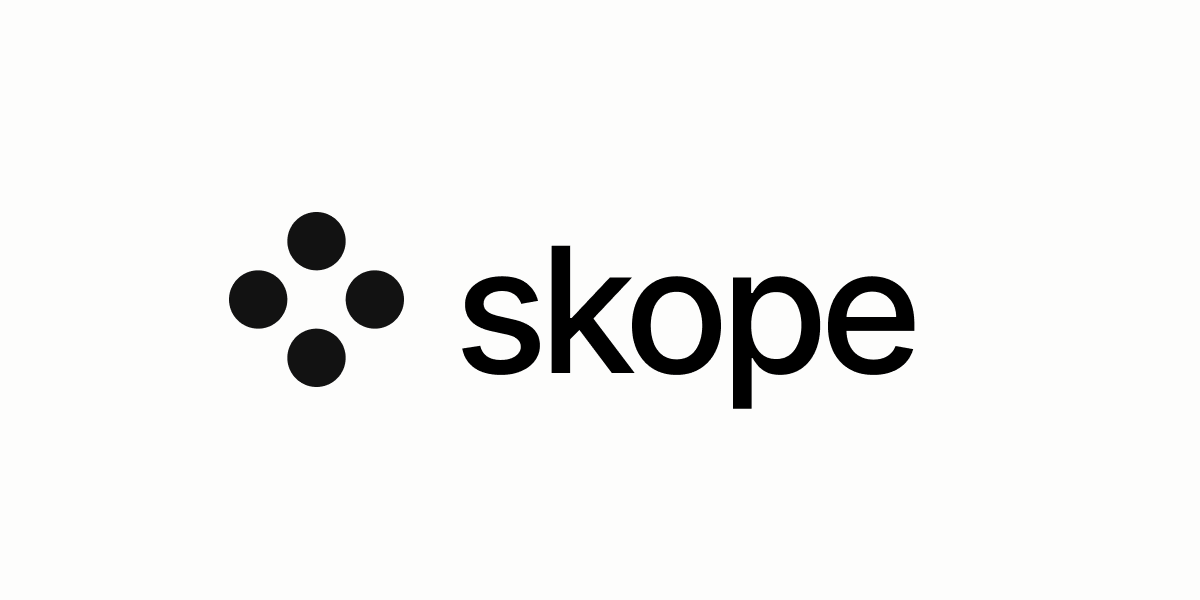Choosing between cash and accrual accounting represents one of the most fundamental financial decisions for small business owners.
Choosing between cash and accrual accounting represents one of the most fundamental financial decisions for small business owners. This critical choice directly impacts your financial reports, cash flow management, and tax planning strategies. QuickBooks offers remarkable flexibility to switch between these two accounting methods with just a few clicks, allowing you to gain different perspectives on your business's financial health.
What Does Cash Basis Accounting Mean?
Cash basis accounting follows a straightforward approach to tracking your business finances. This method only recognizes transactions when money physically changes hands, creating a real-time snapshot of your available funds.
Key Benefits of Cash Basis Accounting
Cash accounting offers several advantages that make it particularly appealing to smaller businesses and startups. The simplicity of this method allows owners to focus on actual cash movements rather than complex financial projections.
Straightforward tracking: Cash basis accounting eliminates the need to monitor receivables or payables, focusing exclusively on completed transactions where money has already changed hands. This simplification makes daily bookkeeping much more manageable for business owners without dedicated accounting staff.
Immediate cash visibility: When using cash accounting, your financial reports provide a clear picture of available funds for operations and investments. For example, a $5,000 payment received today immediately appears in your revenue, giving you confidence to make purchasing decisions based on actual cash on hand.
Reduced complexity: Many small businesses prefer cash basis accounting because it requires less accounting expertise and fewer resources to maintain. The learning curve remains relatively gentle, making it accessible for entrepreneurs who need to handle their own bookkeeping.
Limitations of Cash Basis Accounting
Despite its simplicity, cash basis accounting comes with several drawbacks that can impact your ability to make informed business decisions.
Partial financial picture: Cash accounting fails to account for outstanding invoices or unpaid expenses, potentially creating a misleading impression of your business's profitability. You might believe your business is thriving based on current cash flow while significant unpaid expenses accumulate behind the scenes.
Tax timing challenges: Since revenue only appears on your books when payment arrives, you might inadvertently postpone income recognition when sales are completed but payment remains pending. This timing discrepancy can create tax planning complications and unexpected liabilities.
Planning difficulties: Without recognizing revenue and expenses when they actually occur, identifying meaningful business trends becomes challenging. Cash basis accounting makes accurate forecasting and performance projections more difficult, potentially hampering strategic growth initiatives.
How Does Accrual Accounting Work?
Accrual accounting takes a more comprehensive approach by recording transactions when they occur rather than when payment exchanges hands. This method aligns with the matching principle, ensuring revenues and related expenses appear in the same accounting period.
Major Advantages of Accrual Accounting
Accrual accounting provides a more nuanced view of your business operations and financial health. This method captures the full scope of your business activities, including future obligations and expected income.
Comprehensive financial insights: Accrual accounting delivers a more accurate representation of your business operations by including invoices issued (accounts receivable) and bills incurred (accounts payable). This broader perspective helps you understand future cash flow needs and potential shortfalls before they become problematic.
Enhanced credibility with stakeholders: Generally Accepted Accounting Principles (GAAP) require accrual accounting for many business types. Following these standards enhances your credibility with investors, lenders, and regulatory bodies who rely on standardized financial reporting to make decisions about your business.
Strategic planning advantages: By matching costs with revenues in appropriate periods, accrual accounting enables more accurate profitability assessment over time. This alignment helps you identify seasonal patterns, evaluate product line performance, and develop more effective growth strategies based on complete financial data.
Potential Drawbacks of Accrual Accounting
While accrual accounting provides a more complete financial picture, it also introduces certain challenges that businesses must navigate.
Increased bookkeeping demands: Accrual accounting requires more detailed record-keeping processes. Tracking deferred revenue, accounts receivable, and accounts payable demands greater attention to detail and potentially more sophisticated accounting systems or professional support.
Cash flow versus profitability discrepancies: Since revenue appears on your books before payment arrives, you might report substantial profits while simultaneously experiencing cash shortages. For example, your financial statements might show $50,000 in monthly revenue while your bank account remains nearly empty due to unpaid customer invoices.
Higher administrative costs: The complexity of accrual accounting often necessitates additional time investment or professional accounting assistance. These increased administrative costs must be weighed against the benefits of more comprehensive financial reporting.
How QuickBooks Handles Both Accounting Methods
QuickBooks stands out by offering seamless transitions between cash and accrual reporting. This flexibility allows business owners to evaluate their financial performance from multiple perspectives without maintaining separate accounting systems.
QuickBooks Reporting Features
QuickBooks includes several features that make switching between accounting methods remarkably simple. These tools help business owners generate the specific reports they need without extensive accounting knowledge.
One-click method switching: In QuickBooks Desktop 2018 and later versions, the report toggle button allows instant switching between cash and accrual reports. This convenient feature eliminates the need to navigate complex customization menus each time you want to change perspectives.
Customizable report options: QuickBooks Online users can easily modify individual reports by selecting their preferred accounting method in the report settings. This flexibility applies to essential financial statements like Profit and Loss reports and Balance Sheets, giving you complete control over how you view your financial data.
Automatic transaction adjustments: When properly configured with invoices for accounts receivable and bills for accounts payable, QuickBooks generates accurate accrual-based reports reflecting earned income and outstanding obligations. For cash basis reports, the software automatically removes uncollected income and unpaid expenses to show only completed transactions.
Steps to Change Report Preferences
Switching between cash and accrual reporting in QuickBooks requires just a few simple steps:
- Open your desired financial report (such as Profit and Loss or Balance Sheet)
- Click the "Customize" or "Modify Report" button depending on your QuickBooks version
- Navigate to the "Display" tab and select your preferred accounting method
- Apply the changes to generate your updated report
- Review the adjusted figures reflecting either completed transactions (cash) or all recorded transactions (accrual)
When Should You Use Cash Accounting?
Determining which accounting method best suits your business depends on several factors including size, complexity, and industry requirements. Cash accounting works particularly well in specific business scenarios.
Ideal Business Scenarios for Cash Accounting
Cash accounting provides significant advantages for certain business types and operational models. Understanding these scenarios helps you determine if cash accounting aligns with your specific needs.
Simple transaction businesses: Retail stores, service providers, and businesses that primarily collect payment at the point of sale benefit from cash accounting's straightforward approach. When most transactions complete immediately, cash accounting accurately reflects your daily business activity without unnecessary complexity.
Sole proprietorships and partnerships: Smaller business entities with straightforward operations often find cash accounting sufficient for their needs. The simplified record-keeping requirements reduce administrative burden while still providing adequate financial insights for day-to-day decision making.
Businesses below IRS thresholds: The IRS allows businesses with average annual gross receipts under approximately $26 million to use cash basis accounting. If your business falls below this threshold, cash accounting might offer tax timing advantages while remaining compliant with regulatory requirements.
Tax Implications of Cash Accounting
Cash accounting offers several potential tax benefits that make it attractive for eligible businesses:
- Potential to defer income recognition by delaying customer billing until the next tax year
- Ability to accelerate deductions by paying expenses before year-end
- Simplified tax preparation with fewer adjustments and reconciliations
- Reduced likelihood of paying taxes on income not yet received
- Greater control over year-to-year income fluctuations for tax planning purposes
When Is Accrual Accounting Necessary?
As businesses grow and operations become more complex, accrual accounting often becomes necessary to maintain accurate financial records and meet regulatory requirements.
Growing Business Requirements
Business growth typically introduces financial complexities that cash accounting struggles to address effectively. Recognizing when your business has outgrown cash accounting helps prevent financial mismanagement and compliance issues.
Inventory-based operations: Businesses that maintain significant inventory levels generally require accrual accounting to accurately track cost of goods sold and inventory valuation. Accrual methods provide clearer insights into inventory turnover, profitability, and supply chain efficiency.
Credit sales and extended payment terms: When your business regularly offers credit terms or delayed payment options to customers, accrual accounting becomes essential for tracking accounts receivable and managing collection efforts. This approach prevents revenue recognition delays that could distort your financial picture.
Investor and lender expectations: As your business seeks external funding through investors or lenders, accrual accounting becomes increasingly important. These stakeholders typically expect GAAP-compliant financial statements that accurately reflect your business's complete financial position, including outstanding obligations and future income.
Regulatory Considerations for Accrual Accounting
Several regulatory factors may require your business to adopt accrual accounting regardless of your preference:
- Exceeding the IRS gross receipts threshold (approximately $26 million) requires accrual accounting for tax reporting
- Planning to go public or seek significant external investment necessitates GAAP-compliant accrual accounting
- Operating in regulated industries often requires standardized accrual accounting for compliance
- Maintaining inventory and generating over $1 million in annual revenue typically requires accrual inventory accounting
- Participating in government contracts frequently requires accrual accounting for proper expense allocation
How QuickBooks Simplifies Accounting Method Transitions
QuickBooks provides several features that make transitioning between accounting methods remarkably straightforward. These tools help businesses adapt their financial reporting as needs evolve.
Smart Conversion Features
QuickBooks includes intelligent conversion capabilities that automatically adjust financial reports based on your selected accounting method. These features save considerable time compared to manual adjustments.
Intelligent transaction filtering: When converting from accrual to cash reports, QuickBooks automatically removes uncollected revenue and unpaid expenses from your financial statements. This filtering process provides an accurate cash-basis view without requiring manual calculations or adjustments.
Consistent historical reporting: QuickBooks maintains your transaction history in a format that supports both accounting methods simultaneously. This dual-perspective approach allows you to generate comparative reports across different time periods regardless of which accounting method you currently use.
Automated reconciliation tools: The software includes built-in reconciliation features that help identify and resolve discrepancies between your accounting records and bank statements. These tools work effectively with both cash and accrual methods, simplifying the verification process.
Potential Conversion Challenges
Despite QuickBooks' robust conversion capabilities, certain situations may create challenges when switching between accounting methods:
- Balance sheet accounts like inventory, payroll taxes, and credit card liabilities may not convert perfectly between methods
- Linked transactions between balance sheet accounts might remain visible in cash reports when they should be excluded
- Complex deferred revenue arrangements may require manual adjustments during conversion
- Multi-currency transactions sometimes need additional verification after method conversion
- Historical data accuracy depends on consistent transaction entry practices throughout your accounting history
Best Practices for Effective Financial Reporting
Regardless of which accounting method you choose, following established best practices ensures your financial reports provide accurate, useful information for decision-making.
Consistent Transaction Recording
Maintaining consistency in how you record transactions significantly impacts the quality of your financial reporting. These practices help ensure your QuickBooks data remains reliable regardless of which accounting method you use.
Proper module usage: Consistently use the appropriate QuickBooks modules for different transaction types. Enter all customer invoices through the Accounts Receivable module and all vendor bills through the Accounts Payable module rather than using shortcuts or workarounds that might compromise report accuracy.
Complete transaction details: Include comprehensive information with each transaction entry, including proper categorization, detailed descriptions, and appropriate documentation. This thoroughness ensures your reports contain meaningful data that supports informed business decisions.
Regular reconciliation: Perform regular reconciliations between your QuickBooks records and external statements such as bank accounts, credit cards, and loan balances. These reconciliations help identify discrepancies before they compound into significant reporting errors.
Strategic Report Analysis
Extracting meaningful insights from your financial reports requires a strategic approach that goes beyond simply generating standard statements:
- Compare cash and accrual reports side-by-side to identify potential cash flow challenges despite strong profitability
- Review aging reports for accounts receivable to proactively address collection issues before they impact cash flow
- Analyze expense trends across multiple periods to identify opportunities for cost reduction
- Evaluate profit margins by product line or service category to focus on your most profitable offerings
- Monitor key financial ratios including current ratio, quick ratio, and debt-to-equity ratio to assess overall financial health
Choosing the Right Method for Your Business Stage
Different business stages often benefit from different accounting approaches. Understanding which method aligns with your current situation helps optimize your financial management.
Startup Phase Considerations
Early-stage businesses face unique financial challenges that influence their accounting method selection. Making the right choice during this formative period establishes a solid foundation for future growth.
Resource limitations: Startups typically operate with limited financial resources and accounting expertise. Cash basis accounting offers simplicity that allows founders to maintain basic financial records without extensive accounting knowledge or expensive software solutions.
Focus on cash management: Early-stage businesses must prioritize cash flow to ensure survival. Cash basis accounting provides immediate visibility into available funds, helping entrepreneurs make prudent spending decisions based on actual resources rather than anticipated revenue.
Flexibility for pivoting: Startups frequently adjust their business models in response to market feedback. Cash accounting's straightforward approach accommodates these pivots without requiring complex accounting adjustments that might delay strategic shifts.
Established Business Approaches
As businesses mature and operations stabilize, accounting needs typically evolve to support more sophisticated financial management:
- Transition to accrual accounting to support more accurate profitability analysis by product line or department
- Implement hybrid approaches that leverage both methods for different reporting purposes
- Develop more detailed financial forecasting models based on accrual data
- Establish stronger internal controls around accounts receivable and accounts payable
- Create more sophisticated cash flow projections that incorporate timing differences between accrual and cash recognition
Maximizing QuickBooks for Your Accounting Method
QuickBooks offers numerous features that enhance the effectiveness of both cash and accrual accounting. Leveraging these capabilities helps you extract maximum value from your financial data.
Advanced Reporting Techniques
Beyond basic financial statements, QuickBooks supports sophisticated reporting approaches that provide deeper insights into your business performance.
Custom report creation: Design specialized reports that highlight the specific metrics most relevant to your business decisions. These custom reports can incorporate elements from both cash and accrual perspectives to provide a comprehensive view of your financial situation.
Comparative analysis: Generate side-by-side comparisons of current performance against previous periods, budgets, or industry benchmarks. These comparisons help identify trends, anomalies, and opportunities that might otherwise remain hidden in standard financial statements.
Drill-down capabilities: QuickBooks allows you to explore the underlying transactions behind any figure in your reports. This drill-down functionality helps you understand the specific activities driving financial results and make more informed decisions based on detailed transaction data.
Automation and Integration Benefits
QuickBooks provides automation and integration features that streamline accounting processes regardless of which method you choose:
- Bank feed connections that automatically import and categorize transactions
- Invoice automation tools that streamline billing and collection processes
- Expense tracking features that capture and categorize costs in real-time
- Tax preparation integrations that simplify year-end reporting
- Third-party app connections that extend functionality for specific business needs
Making Your QuickBooks Accounting Decision Today
Selecting the right accounting method significantly impacts your business's financial management and decision-making capabilities. QuickBooks makes this choice more flexible by supporting both approaches within a single platform.
The decision between cash and accrual accounting depends on multiple factors including your business size, complexity, growth plans, and regulatory requirements. Cash accounting offers simplicity and immediate cash visibility that benefits many small businesses and startups. Accrual accounting provides comprehensive financial insights that support strategic planning and stakeholder communication for growing enterprises.
QuickBooks empowers you to implement either method—or even leverage both perspectives simultaneously—without maintaining separate accounting systems. This flexibility allows your financial reporting to evolve alongside your business, adapting to changing needs without disruptive transitions or data migration challenges.
Take advantage of QuickBooks' reporting flexibility to gain insights from both accounting perspectives. Generate cash-basis reports to monitor immediate liquidity while using accrual reports to assess true profitability and business performance. This dual approach provides the comprehensive financial understanding needed to make confident business decisions in today's dynamic economic environment.
Simplify Startup Finances Today
Take the stress out of bookkeeping, taxes, and tax credits with Fondo’s all-in-one accounting platform built for startups. Start saving time and money with our expert-backed solutions.
Get Started









.png)









